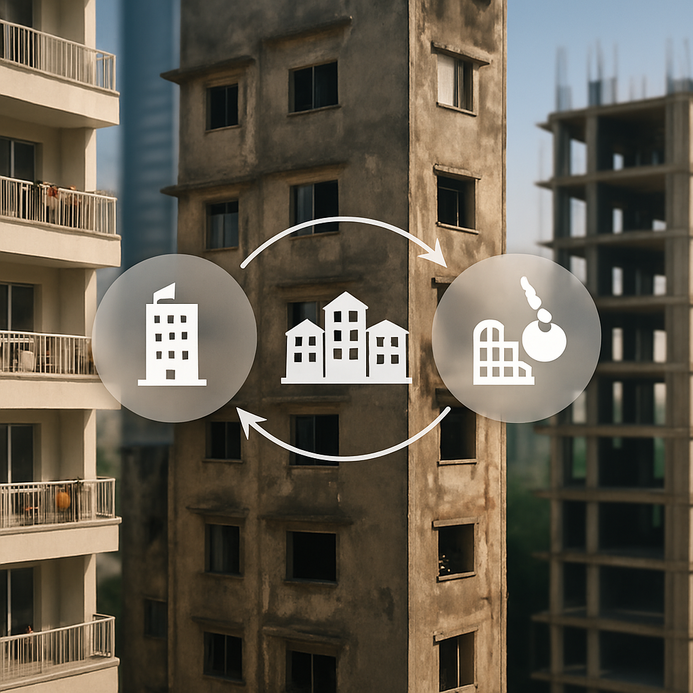Society Rules and Regulations Explained: Your Rights and How to Make Changes
Introduction to Society Bye-Laws: What You Need to Know
So, society bye-laws are kinda the backbone of any residential community. They set those ground rules that everyone follows, like what you can and can’t do. Knowing these regulations is super important if you want to be hands-on in managing your community and looking out for your own interests.
Let’s break down what these bye-laws usually include:
| Component | Description |
|---|---|
| Membership | How to join the society, what you need. |
| Meetings | When and how society meetings go down. |
| Voting Rights | What members get to decide on big issues. |
| Maintenance Charges | How maintenance fees work in Maharashtra. [Source] |
| Dispute Resolution | How to handle conflicts with your neighbors. |
These bye-laws really matter, they create a sense of transparency and accountability, making sure everyone’s on the same page. Sticking to these rules helps maintain a solid living environment.
You can also check out the [Source] for the legal framework that goes into all this. And don’t forget to stay on top of those maintenance charges so you know what’s what in terms of money and services in the community.
If you know how these bye-laws work, you can get involved, suggest the needed changes, and really know your rights. There’s a lot more to explore on community living, so peep those articles about navigating maintenance and rights in your housing society.
Decoding Society Rules and Regulations
Being in a residential society? Well, you better understand the rules! Bye-laws set the standard for how communities should run in India. Familiarity with these can make a huge difference.
Typically, bye-laws cover membership rules, meeting protocols, upkeep fees, and how to voice complaints. They make sure everyone knows their responsibilities and rights, all so life runs smoothly.
Common Legal Terms in Society Bye-Laws
Here’s a quick glance at some legal jargon you’ll see in bye-laws. Knowing these terms can help you make sense of things:
| Term | Definition |
|---|---|
| Bye-Laws | Rules that a society puts in place to manage itself. |
| Quorum | The minimum members needed to hold a valid meeting. |
| Maintenance Charges | Monthly fees for maintaining shared spaces. |
| Redevelopment | Renovating or rebuilding structures in the society. |
Keep a close eye on the rules about maintenance charges; they detail how amounts are figured and when payments are due. For more info, check the Housing Society Rules and Regulations.
With new rules for redevelopment looming in 2024, it’s crucial to know what’s changing and how it affects you. Also, consulting the Societies Registration Act, 1860 can really help you get a clear picture.
The more you know about these rules, the better you can participate and communicate within your community, leading to a more vibrant life together. Want more insights? Check out internal articles about fair RWA elections and parking allocations.
Your Rights as a Member of the Society
Alright, let’s get into your rights as a member of a society. They’re key for smooth sailing in your community! Knowing what you’re entitled to not only empowers you but also helps keep everyone accountable.
Key Rights of Society Members
1. Right to Information: You’ve got the right to know about society rules, finances, and meeting notes. Transparency matters!
2. Right to Fair Treatment: Everyone should be treated equally, discrimination? Not cool! It goes against the society’s rules.
3. Right to Vote: Your vote counts when it comes to electing the management committee. Don’t sit this one out!
4. Right to Maintenance Services: You deserve those essential services – cleaning, security, repairs, as per the rules on maintenance charges.
5. Right to Propose Changes: If you see something that needs fixing, you can propose changes.
Table of Rights and Responsibilities
| Rights | Responsibilities |
|---|---|
| Access to information | Regularly pay maintenance charges |
| Vote in committee elections | Stick to society bye-laws |
| Fair treatment with no discrimination | Join in on general meetings |
| Suggest tweaks to society rules | Respect community norms |
Legal Framework
The Societies Registration Act, 1860 is your go-to for understanding the rules that govern societies in India. Getting acquainted with this act will help you grasp your rights better. For more details, hop over to the Societies Registration Act here.
Knowing your rights and responsibilities strengthens not just you, but your whole community. Want to dive deeper into these regulations? Check out additional reads like our insights on UDS and maintenance charges.
Roles and Responsibilities of the Resident Welfare Association (RWA)
The Resident Welfare Association (or RWA, for short), they’re pretty crucial for keeping things running smoothly in your community. Think of them as the go-to group for managing society rules and making sure everything’s working as it should.
Here are a few things the RWA is responsible for:
| Role | Description |
|---|---|
| Implementation of Bye-Laws | The RWA makes sure everyone sticks to the bye-laws and addresses any issues that come up. |
| Dispute Resolution | Mediates conflicts, keeping the peace between residents. |
| Maintenance Oversight | Manages services like security and repairs according to maintenance charge rules in Maharashtra. |
| Community Engagement | Organizes events to build a sense of community among residents. |
| Communication with Authorities | Acts as a liaison with local authorities for the society’s needs. |
The powers of the RWA are set out in their own bye-laws. It’s important for RWA members to be open and accountable, making sure their decisions align with what’s been agreed upon. And don’t forget, with the new 2024 redevelopment rules, RWAs must follow specific steps to ensure fair decision-making on property improvements.
For more navigation tips on society governance, check the Rules of Society – CMS Society. Understanding the Societies Registration Act, 1860 will give you valuable context about how RWAs are set up and operate.
Want to see how RWAs function in different situations? Read up on this article about navigating challenges they face while keeping communities in check.
Proposing and Enacting Changes: A Step-by-Step Guide
Sometimes, you gotta shake things up, amending existing bye-laws is a big part of keeping your community thriving. Here’s a simple guide to making that happen.
Step 1: Get Familiar with the Rules
Before you start scribbling down a proposal, really get to know the existing rules and regulations. Each community has its own bye-laws, and usually, they’ll tell you how to propose changes. Check those recent updates like society rules.
Step 2: Draft Your Proposal
When you’re writing out your proposal, make it clear and detailed. Start by explaining what you want to change and why it matters. Keep it straightforward so everyone understands. Make sure to include:
– A title and summary
– Your detailed objectives
– Steps to roll this out
– Benefits to the community
Once you’re done, share this in a format everyone can access, think PDF. You might take notes from society maintenance charges rules on structuring documents.
Step 3: Build Support
You’ll need your fellow members behind you. Bring it up in meetings or host a discussion just for this. Use surveys to get a feel for how others are leaning. This helps fine-tune your draft and strengthens your chances when it’s time to vote.
Step 4: The Voting Process
When you’ve rallied enough support, bring the amendment up at a meeting. Follow the society’s voting procedure. You’ll want to confirm what the quorum is generally spelled out in your bye-laws and how to handle the vote (show of hands? secret ballot?).
Key Considerations
| Consideration | Details |
|---|---|
| Majority Required | Check your bye-laws to see how many votes you need to pass your proposal. |
| Documentation | Keep a record of conversations and votes for future reference. |
| Implementing Changes | Lay out how the approved changes will be put into motion. |
Connecting with your fellow members is key, you’ll need their support! For more references, check the Societies Registration Act, 1860.
Explore more helpful articles about enhancing community life like this and this.
FAQ
Q: What are society bye-laws?
A: Society bye-laws are the rules set by a residential community governing the behavior and responsibilities of its members.
Q: How can I propose a change to the bye-laws?
A: Familiarize yourself with the existing bye-laws, draft a proposal with clear objectives, and build support from fellow members before bringing it up in a meeting for a vote.
Q: What rights do I have as a member of the society?
A: Members have rights such as access to information, fair treatment, voting in elections, and the ability to propose changes.
Q: What is the role of the Resident Welfare Association (RWA)?
A: The RWA manages the implementation of bye-laws, mediates disputes, oversees maintenance, and fosters community engagement among residents.
Q: Where can I find more information on society regulations?
A: You can refer to the Societies Registration Act, 1860 for the legal framework governing societies, and various articles available online like those I referenced in this guide.













